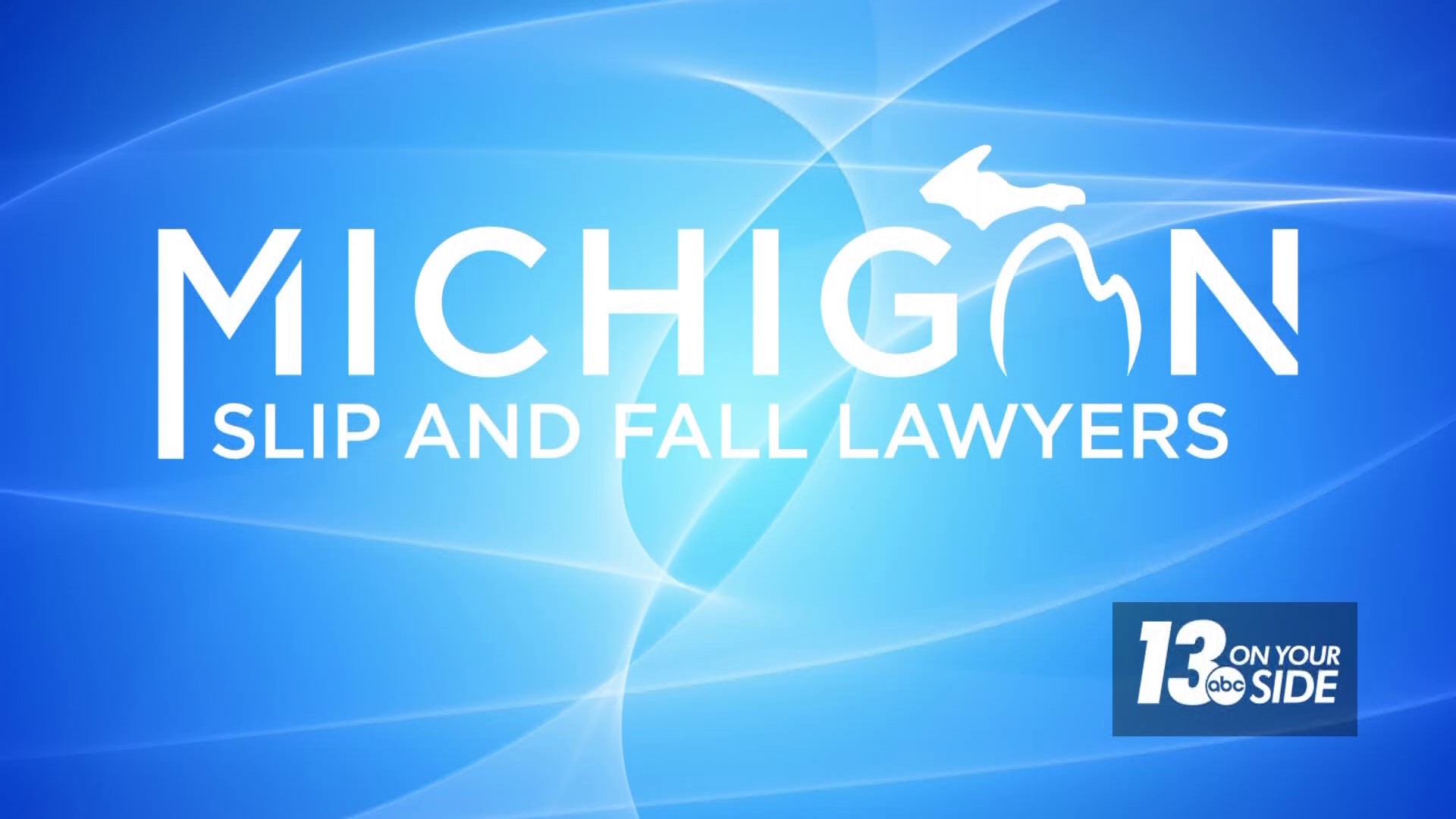GRAND RAPIDS, Mich — The Michigan Supreme Court recently made a ruling that impacts everyone involved in a slip and fall accident, both the victim and the property owner. Attorney Tim Holland joined us from Michigan Slip and Fall Lawyers to explain the changes and why they are important. Holland said the ruling regarding premises liability law
“restores to Michigan citizens their right to fair treatment and justice in the courts of this state if they have been seriously injured in a slip and fall or trip and fall accident caused by a negligent property owner.” Holland said the change will stop property owners from blaming slip and fall victims for their injuries which were caused by dangerous conditions and hidden dangers on the property that the victims knew nothing about. “It will put the decision-making power over victims’ cases largely back with juries, and significantly restrict judges’ ability to dismiss legitimate cases based on factual issues that should be decided by a jury,” said Holland. “It reinstates Michigan premises liability law … to what it was in the decades before the disastrous and destructive 2001 ruling in Lugo v. Ameritech Corp., which this opinion overrules as ‘wrongly decided.’”
Holland said, in light of the ruling, property owners should be aware of several things. He said they have “a duty to exercise reasonable care to protect invitees from an unreasonable risk of harm caused by a dangerous condition of the land.” Holland cautioned, a property owner’s duty to protect is not canceled out or diminished just because a dangerous condition on their land might be determined to be “open and obvious.” He said property owners have a duty to “anticipate the harm” that could befall invitees from an open and obvious dangerous condition they have permitted to exist on their premises. And finally, Holland explained, a slip and fall or trip and fall victim is not barred from holding a premises owner liable just because the victim may have had some small percentage of fault.
For someone who has fallen, Holland said, “under Lugo, property owners would avoid being held legally liable by arguing that the dangerous condition that caused a slip and fall injury was ‘open and obvious’ and, thus, it was the victim’s fault for not being more careful. Previously, ‘open and obvious’ was treated as part of the duty inquiry, which is a question of law that can be decided by a judge without having to send it to a jury. If a judge found that a dangerous condition was ‘open and obvious’ then the judge could rule the property owner owed no duty – and that was the end of the case because if there’s no duty, there’s no breach and no case.” Now, ‘open and obvious’ is to be decided by the jury. “Now, open and obvious doesn’t have anything to do with duty, but rather it is relevant to whether the property owner breached his or her duty by failing to anticipate the harm, and whether a victim had some percentage of fault in contributing to the slip and fall,” said Holland.
In summary, Holland said, juries will be deciding these cases instead of judges. Property owners need to make further efforts to keep people safe. And people who have been hurt might consider pursuing the case. For more information or to contact Holland, visit https://slipandfalllawyerhelp.com/.
This story is sponsored by Michigan Slip and Fall Lawyers.
►Make it easy to keep up to date with more stories like this. Download the 13 ON YOUR SIDE app now.
If you would like more information about advertising with 13 ON YOUR SIDE, please contact Jeff Olsen at jolsen@wzzm13.com.

